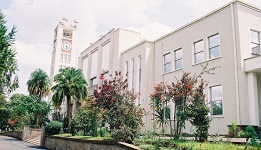Ethiopian parliament today passes a proclamation that will allow the country to establish an independent National Dialog Commission that will bring together Ethiopians with toxic and contradicting political views.
Out of the about 500 plus members of the Parliament, 13 have opposed the proclamation, while one abstained. Among those who opposed the Proclamation expressed their concern that the establishment of the Commission is not clear.
Some expressed their fear that the Commission might be used to sit for dialog with the terrorist groups such as, Tigray Peoples Liberation Front (TPLF) and Oromo Liberation Front (OLF Shene), which have been engaged in killings of civilians, looting and destructions of hospitals and schools in Amhara and Afar regions, among others.
Others also indicated that national consultation shouldn’t include the TPLF which has committed treasons acts on November 3, 2020 against thousands of Ethiopian soldiers who were sleeping.
While the team leader of the committee in the Parliament which reviewed the draft proclamation, indicated that there is no mention of the word negotiation in the document. She stated that the national consultation has nothing to with negotiations.
During this morning meeting some MPs also argued that those who should take part in the national consultation should be the ones who believe in the statehood and existence of Ethiopia as a country.
It is expected that about a dozen independent members of the National Dialog Commission will be appointed in the coming days or weeks.
Over the past few days, it was indicated by Ethiopian Government officials that the duty of the national consultation has nothing to do with negotiations with TPLF or other armed groups labeled as terrorist by the Ethiopian Parliament.
The National Dialog Commission deals with controversial issues such as, some articles of the Ethiopian Constitution, ethnic federalism structure, and regional structures of the country, among others.
Different members of the society from the over 80 ethnic groups of Ethiopia, and people with different social, cultural, economic and political status and views including scholars are expected to be engaged in the national consultation of Ethiopia, which is expected to take three to five years. The agendas of the consultations are also expected to be set by these particip[ants.
Reaching consensus on the controversial issues and holding referendums on issues such as, contentious articles of the Ethiopian Constitution introduced by TPLF a few decades ago, are expected from the all-inclusive national consultations and dialog among Ethiopians.
A. Why the National Dialogue Commission?
•To discuss opinions and disagreements on the most fundamental national issues
•To legally institute a system that facilitates the national dialogue process;
•To establish an institution with widespread legitimacy that could coordinate and lead the deliberations capably and impartially;
B. The Commission and Commissioners
•The Commission shall be accountable to the House of Peoples Representatives.
•The Commission shall have eleven (11) commissioners;
•The Chief Commissioner of the Commission, the Deputy Chief Commissioner and other commissioners shall be appointed by the House of Peoples Representatives
C. Objectives, duties and responsibilities of the Commission
The Commission will, among others,
•Facilitate consultation between the various segments of the society
•identify the root causes of the difference on fundamental national issues
•Plan to implement the results of the consultations;
•Conduct deliberations to improve the relationship among the different segments of the population as well as between the public and the government
•create a conducive environment for the building of a democratic system;
D. Criteria for the Appointment of Commissioners
•Anyone who shall be appointed as a Commissioner shall fulfil some requirements; among which are having Ethiopian nationality; being not a member of any political party; and has not been convicted for committing any serious crime

